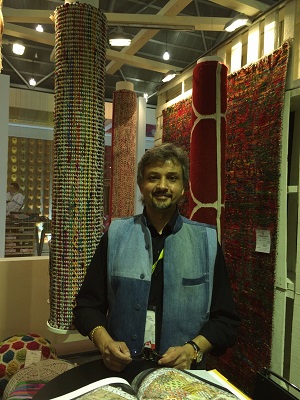If we take a deeper look into the businesses that are running successfully with a sustainable growth, we will find that “innovation” is the key to their success. Designing and manufacturing new products with consumer friendly features is always a challenge, especially when trying to meet customer’s current and future demands.
The question arises: Are businesses really “transparent” in today’s world about how they manufacture and run their operations? Are they “accountable” for their impacts on the society and environment?
With the adverse climatic impacts prevailing everywhere, the time has come when we are not able to operate in isolation anymore. As a responsible corporate citizen, it is our duty to consider our operational impacts on the environmental and society around us. It is now getting mainstream for larger corporations to be cognizant about their triple bottom line and measure their social and environmental impact, while maintaining sustainable growth. Although awareness and trends towards sustainability are increasing, but finding true examples of sustainable innovation in various industry sectors, is still rare.
Sustainable innovation is a key to long-term growth of the business. It provides foundation and a valuable concept which businesses can embed a “life cycle approach” in their systems innovation thinking. It is about analyzing and measuring the impacts of our operations and products at each and every stage of manufacturing, starting from design, raw materials, processing and product manufacturing to treating our waste. Systems and processes are efficiently designed to treat every input and output carefully and recycled to reduce our climatic impact.
Interestingly, I visited ‘International Furniture Fair’, held last week in Singapore and was truly inspired with the closed loop thinking which was integrated into the designing process of various furniture and flooring manufacturers. Beautiful and sophisticated designs of furniture created with recycled wood, plastics, fabrics, and other recycled natural materials was not a rare scene.
Visitors could also get a glimpse into the business model of Sharda India, a pioneer organization manufacturing floor coverings and rugs with their exclusive signature designs created through recycling processes. I was mesmerized to look at the carpet that won the Best Design Award at the fair. Colorful and intricate knots were woven manually to create geometrical patterns through recycled textile materials. Every carpet of Sharda spoke a story of passion with care and creativity with sustainable thinking behind using waste and recyclable materials such as fabrics, wool, and leather.

Mr. Aditya Gupta, the Director of Sharda India (picture on the right), walked me through his story with pride and passion of building this sustainable business from rags to riches over the years. With his visionary leadership, social corporate responsibility has been integrated into the business ethics. With the right Environmental Management Systems in place, efficient machinery, infrastructure and processes, they have established their brand with great care towards their employees.
Recycling the waste textiles to create innovative home textiles, using eco-friendly dyes and chemicals, and efficient effluent treatments narrates the complete story of a sustainable business with reduced environmental footprint.
It will be inspiring to see Sharda and other similar businesses progressing, and reporting their accountability story and performance through a ‘Sustainability and Footprint Report’. Hopefully, these Sustainable Business model will motivate other textiles and carpet businesses to create their own responsible business structure to manage and mitigate their impacts.


